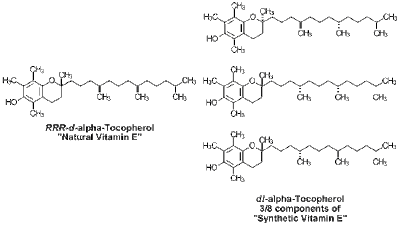Why You Might Be Taking Synthetic Vitamins Even If You Don't Take Vitamins
By JULIE - 12:18:00 PM
Even Organic Food Can Have Synthetic Vitamins
When I read the chapter about the history of foods enriched and fortified with synthetic vitamins, the ideal of fortified and enriched foods suddenly started turning sour. I always thought the more vitamins the better right? I never would have guessed that could be harmful.
I ran to my fridge and started looking at labels. I have been using
 |
| Ingredients in Trader Joe's Almond Milk image credit |
Synthetic VS Natural Vitamins
So what's the big deal? Why does it matter if vitamins are synthetic or natural? Synthetic vitamins are the chemical mirror images of the real, natural versions, but they don't look the same as the real vitamins. Look at the photograph of natural vitamin C and ascorbic acid (synthetic vitamin C), and you'll see that they don't look the same. One thing that is different is natural vitamins have co factors and transporters that work with the vitamin that synthetics do not. According to Organic Consumers "A synthetic vitamin can stimulate a cell's metabolism, but it cannot upgrade or replace the cell's components with superior, better quality elements. The results? A degraded cell. Nature always packages vitamins in groups. The vitamins work together for better absorption. For this reason, the body responds to an isolated vitamin in the same way it responds to a toxin."
 |
| How natural vitamin C differs from synthetic image source |
 |
| You can see here how synthetic vitamin E differs from the natural image source |
It sounds like for the most part the easiest way to tell if it's natural is to find out where the source is if possible (this is most helpful in choosing supplements). Nutriteam has a great chart to help you in figuring this out. With enriched or fortified foods it's harder to tell because you don't know the source. You basically have to memorize what is the natural and synthetic version of the most common vitamins, because some added vitamins in foods are natural and therefore fine. The synthetic vitamins you want to be very careful of are the fat soluble vitamins, because they can accumulate in your fat and become toxic. Here are the natural and synthetic forms of the fat soluble vitamins:
- Vitamin A Vitamin A Palmitate is the synthetic version of Vitamin A. Even small amounts of the synthetic fat soluble vitamins like Vitamin A can prove toxic and should be strictly avoided!
- Vitamin E Dl-alpha tocopherol acetate is the synthetic version of vitamin E and the natural version is RR d-alpha tocopherol acetate
- Vitamin D The Synthetic version of vitamin Dis D2, the natural version is D3.
- Vitamin K The FDA banned the synthetic for K3 in supplements due to it's toxicity. K1 and K2 are the natural form and have no upper limit because they have not shown any toxicity.
Foods That Are Often Fortified or Enriched
- refined flours
- non dairy "milk"
- milk
- cereals
- processed foods
For more info check out Vitamin Myth Exposed by Dr. Brian R. Clement























0 comments